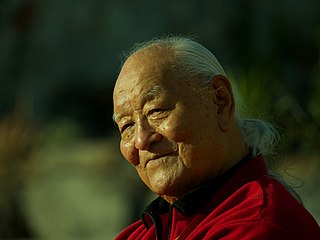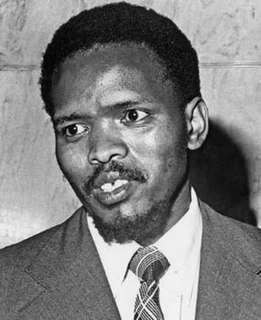A Quote by Hilary Kornblith
Epistemologists should be concerned with knowledge and justification and so on, not our concepts of them; philosophers of mind should be concerned with various features of our mental life and the large-scale structure of the mind, not our concepts of mind, or consciousness, or anything else
Related Quotes
Duality is the real root of our suffering and of all our conflicts. All our concepts and beliefs, no matter how profound they may seem, are like nets which trap us in dualism. When we discover our limits we have to try to overcome them, untying ourselves from whatever type of religious, political, or social conviction may contain us. We have to abandon such concepts as 'enlightenment', 'the nature of the mind', and so on, until we no longer neglect to integrate our knowledge with our actual existence.
A purely mental life may be destructive if it leads us to substitute thought for life and ideas for actions. The activity proper to man is purely mental because man is not just a disembodied mind. Our destiny is to live out what we think, because unless we live what we know, we do not even know it. It is only by making our knowledge part of ourselves, through action, that we enter into the reality that is signified by our concepts.
The experimentalists think that we can only get at our concepts by way of empirical investigation, while the armchair philosophers think that we can skip the experiments and figure things out from our armchairs. What they have in common, however, is regarding our concepts as the targets of philosophical theorising, and I just don't think that, in the vast majority of cases, the subject matter of philosophy has our concepts as its target.
We deal with our mind from morning until evening. This mind can be our best friend or our worst enemy. We should do everything we can to improve outer circumstances - remedying poverty, inequalities, conflicts, and so on - while also doing our best to achieve a state of mind that give us the inner resources to deal with the ups and downs of life.
The effect, if not the prime office, of criticism is to make our absorption and our enjoyment of the things that feed the mind as aware of itself as possible, since that awareness quickens the mental demand, which thus in turn wanders further and further for pasture. This action on the part of the mind practically amounts to a reaching out for the reasons of its interest, as only by its ascertaining them can the interest grow more various. This is the very education of our imaginative life.
Magic is a sudden opening of the mind to the wonder of existence. It is a sense that there is much more to life than we usually recognize; that we do not have to be confined by the limited views that our family, our society, or our own habitual thoughts impose on us; that life contains many dimensions, depths, textures, and meanings extending far beyond our familiar beliefs and concepts.
Our mind has its history, just as our body has its history. You might be just as astonished that man has an appendix, for instance. Does he know he ought to have an appendix? He is just born with it....Our unconscious mind, like our body, is a storehouse of relics and memories of the past. A study of the structure of the unconscious collective mind would reveal the same discoveries as you make in comparative anatomy. We do not need to think that there is anything mystical about it.
I say that creeds, dogmas, and theologies are inventions of the mind. It is the nature of the mind to make sense out of experience, to reduce the conglomerates of experience to units of comprehension which we call principles, or ideologies, or concepts. Religious experience is dynamic, fluid, effervescent, yeasty. But the mind can't handle these so it has to imprison religious experience in some way, get it bottled up. Then, when the experience quiets down, the mind draws a bead on it and extracts concepts, notions, dogmas, so that religious experience can make sense to the mind.
I would say to bishops, and to all men in authority, we should have an interest in carrying on this work. We should labor to get the Spirit of God. It is our right, our privilege, and our duty to call upon the Lord, that the vision of our mind may be opened, so that we may see and understand the day and age in which we are living. It is your privilege, and mine too, to know the mind and will of the Lord concerning our duties, and if we fail to seek after this, we neglect to magnify our calling.
We do not want to be reminded that it is we, the indigenous people, who are poor and exploited in the land of our birth. These are concepts which the Black Consciousness approach wishes to eradicate from the black man's mind before our society is driven to chaos by irresponsible people from Coca-cola and hamburger cultural backgrounds.































